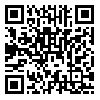BibTeX | RIS | EndNote | Medlars | ProCite | Reference Manager | RefWorks
Send citation to:
URL: http://ijn.iums.ac.ir/article-1-692-en.html
Background and Aim : Nowadays, one of the roles of all nurses is the research. Managers with their power can promote the conduct and utilization of research among practical nurses. This study aimed to identify attitudes and perceived barriers to carry out research among hospital nurse managers.
Material and Method: In this descriptive study, sample included nurse managersof the all levels working in hospitals of Kerman city. An instrument was designed in three parts: demographic characteristics, attitude scale and Barriers scale. The data was analyzed with measures of central tendency, dispersion, ANOVA, t-test, Kruskal-Wallis and Mann-Witney test. The authors declare that they have no conflict of interests.
Results: The mean age of managers was 39.16 years. The majority (96.4%) of managers were women and Bachelor of Science degree (84.1%). The rate of managers’ research activities in seven of twelve items was lower than 20%. The most research activity in managers was “aticipating research courses” (59.7%). Attitudes to nursing research were quietly positive (71.8%). The most agreement was with “the managers must specify time to read the latest research findings (97.8%)”. Managers evaluated the intensity of all barriers higher than 70%. The most intensity was attributed to the barrier “heavy workload in hospital as the result of lack of personnel” and “not having formal time for research activity” (96.4%). Demographic characteristics did not have any statistical significant relationship with attitudes and barriers.
Conclusion: These results signals a warning to body of nursing and managers, If this condition continues, practice nurses will not have any role in production of nursing science that leads to loss of true nursing identity.
Received: 2009/12/28 | Accepted: 2014/08/25 | Published: 2014/08/25
| Rights and permissions | |
 |
This work is licensed under a Creative Commons Attribution-NonCommercial 4.0 International License. |




